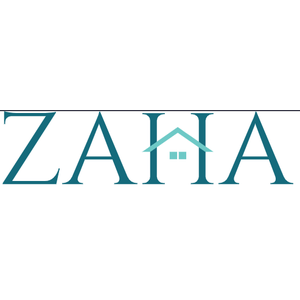Imagine a government agency that runs like a well-oiled machine—processes are smooth, services are reliable, and citizens actually trust the system. Sounds like a dream, right? In Nigeria, where public sector organizations often face scrutiny for inefficiency, ISO 9001 certification is quietly becoming a beacon of hope. It’s not just a fancy badge to slap on a website; it’s a framework that can transform how government agencies and public institutions deliver value. Let’s explore why ISO 9001 matters, how it’s reshaping Nigeria’s public sector, and what it takes to get there.
What’s ISO 9001, and Why Should You Care?
iso 9001 certification in Nigeria is a global standard for quality management systems (QMS). It’s like a playbook for organizations to ensure their processes consistently meet customer and regulatory expectations. For public sector organizations—think ministries, parastatals, or local government bodies—this means delivering services that are efficient, transparent, and citizen-focused.
Here’s the thing: Nigeria’s public sector has a reputation for bureaucracy and red tape. Citizens often wait months for simple approvals or services. ISO 9001 flips that script by emphasizing streamlined processes, accountability, and continuous improvement. It’s not about perfection but about building systems that work better every day. And honestly, who wouldn’t want that?
A Quick Snapshot of ISO 9001 Benefits
- Efficiency: Cuts down on wasted time and resources.
- Trust: Builds confidence among citizens and stakeholders.
- Consistency: Ensures services are predictable and reliable.
- Compliance: Aligns with international standards, making Nigeria’s institutions more competitive globally.
Why Nigeria’s Public Sector Needs ISO 9001 Now More Than Ever
Nigeria’s public sector is at a crossroads. With a growing population and increasing demands for better governance, agencies can’t afford to lag. ISO 9001 isn’t just a nice-to-have; it’s a lifeline. Take, for example, the frustration of processing a passport or registering a business. Delays and inconsistencies erode public trust. A QMS based on ISO 9001 can standardize these processes, reducing errors and speeding up delivery.
But it’s not just about fixing what’s broken. Nigeria is positioning itself as a global player—think AfCFTA (African Continental Free Trade Area) and international partnerships. Certified agencies signal to the world that they’re serious about quality. Plus, with the 2025 elections looming, showcasing efficiency could be a political win. Who doesn’t love a government that gets things done?
The Nuts and Bolts: How ISO 9001 Works in Practice
Okay, let’s get practical. ISO 9001 isn’t a one-size-fits-all checklist; it’s a flexible framework. Here’s how it applies to a public sector organization:
- Leadership Commitment: Top brass must champion the cause. Without buy-in from directors or permanent secretaries, it’s dead in the water.
- Process Mapping: Identify every step in your service delivery—say, issuing a driver’s license—and streamline it.
- Risk Management: Anticipate what could go wrong (lost documents, anyone?) and plan to prevent it.
- Continuous Improvement: Regularly review and tweak processes based on feedback and audits.
Sounds simple, but it’s a mindset shift. Public sector workers often juggle heavy workloads with limited resources. ISO 9001 forces you to work smarter, not harder. For instance, a local government in Lagos used ISO principles to cut down land title processing from six months to two weeks. That’s not just progress; it’s a lifeline for citizens.
The Emotional Pull: Why This Matters to Nigerians
Let’s pause for a second. If you’re Nigerian, you’ve probably had that moment of frustration—waiting endlessly at a government office, wondering if anyone cares. ISO 9001 isn’t just about processes; it’s about dignity. It’s about ensuring a mother can get her child’s birth certificate without jumping through hoops. It’s about a small business owner registering their company without losing hope.
When agencies adopt ISO 9001, they’re saying, “We see you, and we’re trying to do better.” That’s powerful. In a country where trust in institutions is shaky, small wins like these can spark hope. Isn’t that worth striving for?
Challenges: It’s Not All Smooth Sailing
Now, I’m not going to sugarcoat it—getting ISO 9001 certification isn’t a walk in the park. Public sector organizations in Nigeria face unique hurdles:
- Resource Constraints: Budgets are tight, and training staff or hiring consultants costs money.
- Resistance to Change: Some employees see new systems as extra work, not progress.
- Bureaucracy: Ironically, the same red tape ISO 9001 aims to cut can slow down its adoption.
- Awareness Gaps: Many agencies don’t even know what ISO 9001 is or why it matters.
But here’s a silver lining: these challenges aren’t insurmountable. Organizations like the Nigerian National Petroleum Corporation (NNPC) have tackled similar issues by starting small—piloting ISO 9001 in one department before scaling up. It’s like learning to ride a bike: wobbly at first, but you get the hang of it.
How to Get Started: A Roadmap for Nigerian Agencies
Ready to take the plunge? Here’s a step-by-step guide to ISO 9001 certification, tailored for Nigeria’s public sector:
Step 1: Get Leadership Onboard
You need a champion—someone with clout, like a permanent secretary or director-general. They’ll rally the troops and secure funding. Without this, you’re spinning your wheels.
Step 2: Conduct a Gap Analysis
Hire a consultant (or train internal staff) to assess your current processes against ISO 9001 standards. This is like a health checkup for your organization. Firms like QMS International or local players like DQS Nigeria can help.
Step 3: Develop Your QMS
Map out your processes, document them, and create a plan to address gaps. This is where the rubber meets the road. Use tools like Microsoft Visio or even simple Excel sheets to keep things organized.
Step 4: Train Your Team
Everyone needs to know their role. Training can be in-house or through certified bodies like the International Register of Certificated Auditors (IRCA). Don’t skimp here—knowledge is power.
Step 5: Implement and Monitor
Roll out your QMS, track performance, and gather feedback. Software like Trello or Asana can help manage tasks. Regular internal audits keep everyone accountable.
Step 6: Get Certified
Bring in an accredited certification body (e.g., Bureau Veritas or SGS Nigeria) for an external audit. Pass, and you’re certified. Fail, and you’ll get a report on what to fix. Either way, you’re learning.
A Quick Tip
Start small. If you’re a large ministry, pilot ISO 9001 in one unit, like procurement or customer service. Success breeds confidence, and soon others will want in.
The Bigger Picture: ISO 9001 and Nigeria’s Future
Let’s zoom out. ISO 9001 isn’t just about one agency or one process—it’s about Nigeria’s global reputation. Certified public sector organizations attract foreign investment, boost trade, and signal reliability. In a world where perception matters, that’s huge.
Plus, there’s a ripple effect. When one agency gets certified, others take notice. It’s like a domino effect of progress. Imagine a Nigeria where every government interaction—tax filing, healthcare access, or business licensing—is seamless. That’s the dream ISO 9001 is inching us toward.
Common Myths About ISO 9001 (And Why They’re Wrong)
Before we wrap up, let’s bust a few myths floating around:
- “It’s too expensive.” Sure, there’s an upfront cost, but the long-term savings from efficiency and reduced errors outweigh it. Think of it as an investment, not an expense.
- “It’s only for private companies.” Nope. Governments worldwide, from the UK to Singapore, use ISO 9001 to improve public services.
- “It’s too complicated.” It’s not rocket science—just a structured way to organize chaos. With the right guidance, any agency can do it.
- “It’s a one-and-done deal.” Certification is just the start. The real magic happens with continuous improvement.
Your Next Steps: Don’t Just Dream, Act
So, here we are. ISO 9001 isn’t a magic wand, but it’s a darn good tool for Nigeria’s public sector. It’s about building systems that serve people better, restoring trust, and showing the world Nigeria means business. If you’re part of a government agency, why not start the conversation? Talk to your leadership, reach out to a consultant, or even google “ISO 9001 Nigeria” for local resources.
You know what? The journey might be tough, but the payoff—happier citizens, smoother operations, and a stronger Nigeria—is worth every step. So, what’s stopping you? Let’s make quality the new standard.
- ISO 9001 Certification In Nigeria - IAS Nigeria
- Ever wonder how to get ISO 9001 certification in Nigeria? The process is simple through IAS. Enhance your business efficiency and apply today
- iso 9001 certification in nigeria
Related posts:
 Engineering Design Assignment Help: Making Complex Projects Easier for Students
Engineering Design Assignment Help: Making Complex Projects Easier for Students
 Struggling with Computer and Networking Assignments? Here’s How to Get Expert Help
Struggling with Computer and Networking Assignments? Here’s How to Get Expert Help
 Get Instant Last Minute Assignment Help in Australia by India Assignment Help
Get Instant Last Minute Assignment Help in Australia by India Assignment Help
 AI and Job Security: Discover Which Tech Roles Are Truly Safe in 2025
AI and Job Security: Discover Which Tech Roles Are Truly Safe in 2025
 World War 3 Predictions Through Astrology: What the Stars Foretell
World War 3 Predictions Through Astrology: What the Stars Foretell
 How to Get Started with Web Development as a Beginner: Complete Guide
How to Get Started with Web Development as a Beginner: Complete Guide
 Powerful Legacy of Bhai Balwinder Singh Jatana: A Heroic Journey
Powerful Legacy of Bhai Balwinder Singh Jatana: A Heroic Journey








